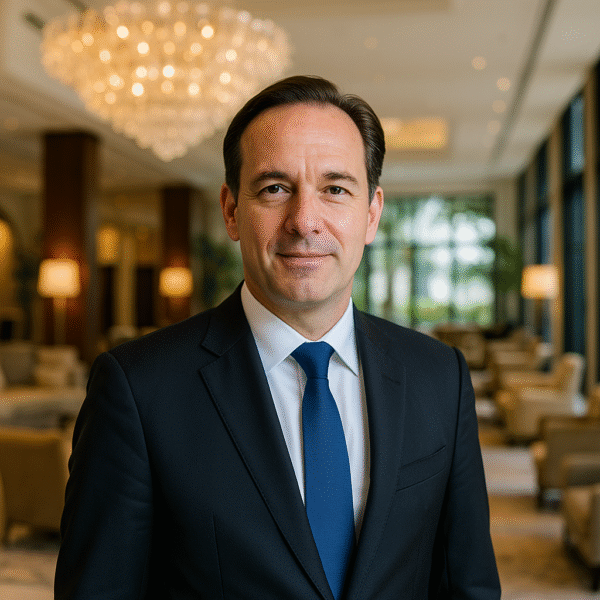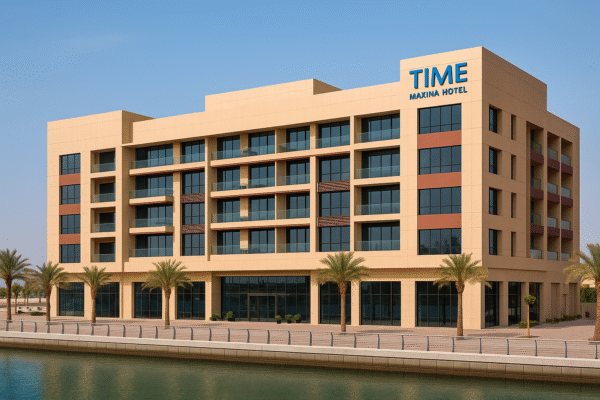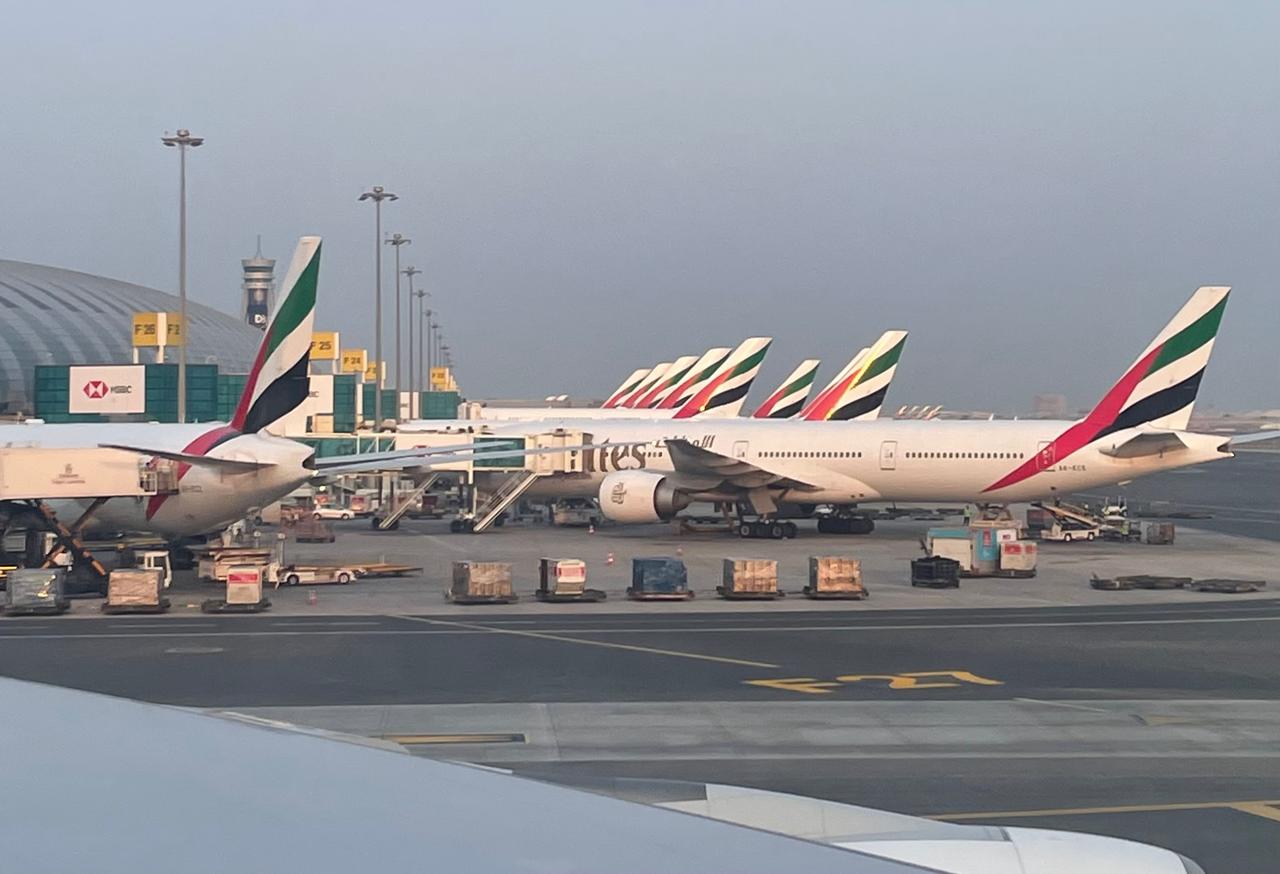In a landmark sustainability initiative, Emirates Group has unveiled its bold vision for the future of eco-conscious aviation at its flagship event, Tomorrow Takes Flight. Hosted in Dubai, the showcase demonstrated the airline group’s unwavering commitment to reducing plastic waste, promoting a circular economy, and aligning with the UAE’s Net Zero 2050 Strategy and the United Nations’ global campaign to beat plastic pollution.
With contributions from Emirates, dnata, and a wide range of global industry partners, the event spotlighted the Group’s holistic approach to sustainability—ranging from engineering innovations and waste reduction to sustainable catering, recycling programs, and employee engagement.
A Unified Mission to End Plastic Waste in Aviation
At the heart of Tomorrow Takes Flight was a renewed push to eliminate single-use plastics across all operational divisions. Emirates Group’s departments—including engineering, inflight services, catering, cargo, airport operations, and technology—presented aligned efforts to minimize waste, repurpose materials, and embrace responsible sourcing.
As part of its long-term sustainability roadmap, the airline is phasing out plastic wrapping, cutlery, and packaging onboard, introducing biodegradable and compostable alternatives. dnata, Emirates’ ground services and cargo arm, also showcased its transition toward plastic-free and low-waste operations in its lounges and catering services across the globe.
Cross-Industry Collaboration for Environmental Innovation
The event’s conference segment featured influential speakers and sustainability leaders from Emirates Engineering, Flight Operations, and SkyCargo, as well as strategic partners including Airbus, Boeing, Rolls-Royce, GE Aerospace, Dubai Airports, and the University of Cambridge.
Panel discussions explored emerging solutions such as sustainable aviation fuels (SAF), lighter aircraft materials, energy-saving ground operations, and closed-loop waste systems. These collaborations reinforced Emirates Group’s strategy of working across sectors to shape a greener aviation industry.
Circular Economy in Action: From Aircraft Parts to Everyday Items
A standout highlight was the Aircrafted by Emirates initiative, which creatively repurposes materials from retired aircraft. Through precision upcycling, components like fuselage panels and aircraft-grade metals are transformed into functional lifestyle items—ranging from furniture to home décor—offering a compelling example of circular design within aviation.
Visitors also interacted with Emirates Flight Catering’s biodigester exhibit, which converts organic waste into compost or bioenergy. The system forms part of a broader mission to reimagine resource management in airline food operations, reducing landfill dependency and maximizing sustainability.
Dnata’s Global Green Initiatives
Dnata, a major part of Emirates Group, offered a global perspective on sustainability through its operations in over 30 countries. The Catering & Retail division highlighted its efforts in sourcing local, seasonal ingredients and using compostable packaging. Recycling-focused practices were also presented by dnata Cargo, demonstrating how logistics hubs in the UAE, UK, and Australia are minimizing their carbon impact.
Sustainable design principles were evident in marhaba lounges, where advanced portioning strategies are reducing food waste. Meanwhile, dnata Travel shared insights into its eco-tourism initiatives in Asia, including a river waste interception system in Sri Lanka, developed to prevent marine pollution.
Strategic Partners Enhancing Impact
Several partner organizations contributed to the event, underlining the interconnected nature of sustainability across industries. Ecyclex and Reloop displayed their electronic and plastic waste recycling capabilities, offering real-time demonstrations of how Emirates Group IT recycles obsolete hardware and cables.
Falcon Aircraft Recycling turned heads with display pieces made from scrapped aircraft interiors, symbolizing aviation’s potential to merge industrial efficiency with environmental consciousness. The Dubai Can campaign, which promotes water refill stations citywide, also introduced attendees to the Dubai Reef project—set to become the largest artificial reef system in the world, aimed at enhancing marine biodiversity.
Aligning with Global Climate Goals
Representatives from the United Nations Global Compact (UNGC) provided context on how Emirates Group’s efforts align with the UN Sustainable Development Goals (SDGs), especially those concerning responsible consumption, climate action, and industry innovation. The event’s overarching theme—“Consuming Responsibly”—emphasized the importance of collective responsibility in achieving long-term environmental progress.
Dubai Airports, as a key stakeholder, shared updates on its advanced waste management technologies, including AI-powered waste sorting and solar-powered compactors, further promoting a cleaner airport ecosystem.
Engaging the Workforce Through Action
Employee engagement played a critical role in the success of Tomorrow Takes Flight. Staff participated in quizzes, interactive booths, and green challenges, fostering a deeper understanding of the Group’s environmental priorities.
One of the most memorable activities was the Bottle Wall Challenge, where employees donated plastic bottles, later converted into artistic plant holders. These personalized giveaways served as symbolic tokens of the power of reuse and regenerative thinking.
Reusable merchandise—including bamboo cutlery sets, eco-notebooks, and stainless-steel water bottles—was distributed throughout the event to encourage sustainable choices beyond the workplace.
A Sustainable Roadmap for the Future
With Tomorrow Takes Flight, Emirates Group reaffirmed its role as a global sustainability leader in aviation. Through strategic innovation, industry collaboration, and transparent action, the Group is paving the way toward a future where travel and environmental responsibility coexist in harmony.
This initiative not only supports the UAE’s ambitions under the Net Zero 2050 Strategy but also places Emirates at the forefront of green transformation in the global travel sector.
From circular aircraft design to eco-conscious catering, Emirates Group is proving that aviation can rise to meet the climate challenge. As global airlines race toward sustainability, Tomorrow Takes Flight stands as a powerful example of vision transformed into tangible, impactful action.
For more travel news like this, keep reading Global Travel Wire
















